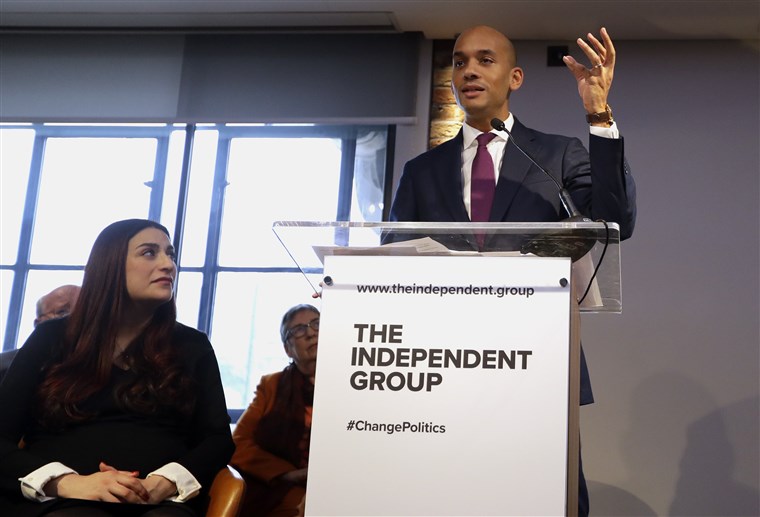By Rachel Elbaum
LONDON — With just 39 days until Britain is scheduled to leave the European Union, Brexit has prompted a split in the U.K.’s main opposition party.
Seven British lawmakers on Monday resigned from the Labour Party over its Brexit policies as well as other issues, including its approach to anti-Semitism.
“The Labour Party that we joined, that we campaigned for and believed in, is no longer today’s Labour Party. We did everything we could to save it, but it has now been hijacked by the machine politics of the hard left,” lawmaker Chris Leslie told a news conference.
The leavers, who are known as The Independent Group, presented themselves as a new centrist option.
However, they stopped short of forming a new political party.
The quitters represent a small fraction of Labour’s 256 lawmakers, or of the 650 total members of Parliament. But this is the biggest split in the party since four senior members quit in 1981 to form the Social Democratic Party.
The question of Britain’s place in — or out — of Europe has long split the country’s two main political parties.
In January, more than one-third of lawmakers from Prime Minister Theresa May’s ruling Conservative Party rejected the Brexit divorce deal she negotiated with the E.U.
Some lawmakers feel that May’s Brexit proposal doesn’t go far enough in severing the links between the U.K. and E.U., others want a closer relationship than May’s deal offers, while still others want no Brexit at all.
The Labour Party officially supports Britain’s exit and is pressing for a close relationship with the 28-member bloc. However, many of the party’s lawmakers don’t want to leave the E.U. and some are demanding a new referendum.
At the Monday morning press conference, the leaving Labour lawmakers slammed their former party’s leadership and appealed to colleagues in other parties to join them.
“We are clear where we stand on Brexit. This is a national catastrophe and we want no part facilitating the disaster if it happens,” said Chuka Umunna, one of the lawmakers who resigned from Labour and who had once been seen as a future leader of the party.
The question now is if lawmakers in other parties will align themselves with the new group. The number of lawmakers breaking away is too few at the moment to influence any major decisions in parliament.
Labour leader Jeremy Corbyn said that he was “disappointed that these MPs have felt unable to continue to work together for the Labour policies that inspired millions at the last election and saw us increase our vote by the largest share since 1945.”




























